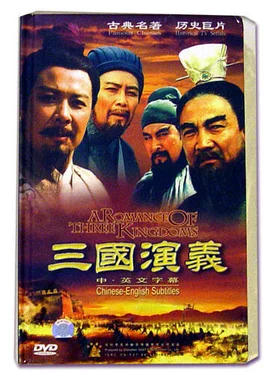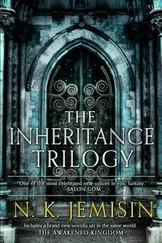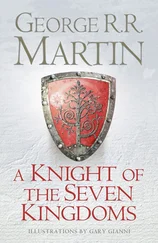Not only did Xuan Wang have good ministers, but he also had a good queen, Jiang Hou, who today ranks among the greatest women of antiquity. It is stated that the emperor was less energetic when he saw that his state was in a better condition. He began to rise late and was indifferent to the affairs of state. No advice from ministers was heeded; but finally Jiang Hou hit upon an expedient which proved successful. One morning she deprived herself of all emblems of royalty, and sent word to Xuan Wang that she was no longer worthy to be his queen, since she had failed to prevent him from falling into the evils which would ultimately bring his government into difficulties.
5.2.j. Yu Wang:Unfortunately, Xuan Wang did not have a good son. He was succeeded by Yu Wang, in whose reign of eleven years we see the records of Jie and Zhou Xin repeated. Like them, Yu Wang was completely under the influence of a beauty. By a well-planned stroke of policy, this woman had the queen degraded and the crown prince disinherited in favor of herself and her son. This was the infamous Bo Su, whose smile cost Yu Wang his crown and his life.
Tradition says that Bo Su was hard to please, and that the king tried every means in his power to make her smile, but without success. He at length thought of a scheme. He had all the beacons lighted, which, it must be remembered, was to be done only as a signal for the nobles to come to the defense of their overlord. The loyal nobles responded promptly with what forces they were able to collect at short notice. To their dismay they discovered that no danger existed and that the whole thing was but a false cry of "wolf." Yu Wang was indeed successful, for he saw a smile on the face of Bo Su.
The mistake he thus made, however, was a fatal one. Not long afterwards his empire was invaded by the barbarians known as the Jung. As the country was by no means prepared for the attack, the emperor lighted the beacons again, but no one responded. The capital was easily taken, and Yu Wang slain. These barbarians had invaded China at the invitation of the Marquis of Shen, father of the former queen. In the court of this marquis, the disinherited crown prince had sought refuge. Instead of surrendering the unhappy exile, the marquis allied himself with the Jung to make war on Yu Wang.
5.2.k. Removal of the capital:For a time the Jung were permitted to plunder the country, but the allied troops of the more powerful nobles finally drove them outside of China. The vacant throne was then restored by the allies to the disinherited crown prince. The dynastic title of the new king was Ping Wang, or "The Pacifier," but he was not worthy of the name.
No sooner did he come to the throne than he transferred the seat of government to "The Eastern Metropolis," in Luoyi (near Luoyang), a city built by the famous Duke of Zhou, and hitherto used as the place for meeting the nobles, because of its central location. Henceforth the dynasty was known as "The Eastern Zhou."
With this event, which took place in 770 BC, a period of weakness came upon the Zhou Dynasty. During the remainder of some 500 years, it existed in name only. The weaker feudal states were an easy prey for the more powerful nobles who only acknowledged allegiance to the emperor so long as it suited them. The China of this period may be described as an empire partitioned amongst the nobles.
5.2.l. The tribes:We have seen that the removal of the capital to the east was due entirely to a dread of the growing power of the tribes in the west. These were not the only barbarians which existed then. Their kindred in the north and in the south also made constant inroads into China. The weakness of the reigning house was most favorable to their growth. As the Zhou Dynasty was not able to defend the country, the task fell to the lot of the nobles. Fortunately for China, the Mongolian Tartars were not strong enough then to harass the northern border, or they would have made short work of a weakened empire.
5.2.m. Aborigines:The rulers of the Zhou Dynasty never troubled themselves much about the aborigines. As long as they remained quiet, they were always permitted to retain their customs and land in the heart of the empire. They were scattered here and there among feudal states. For several centuries, they remained uninfluenced by Chinese civilization. In view of their love of war, they became very valuable tools of the feudal states; but, as the latter grew stronger, they were either conquered or disappeared through assimilation.
5.3. Eastern Zhou: The Age of Feudalism (770-476 BC)
5.3.a. Introduction:The Feudalism in China furnishes a most important study. The best record of this period has been preserved in the Spring and Autumn Classic, dating from 722 to 481 BC, a work said to have been edited by Confucius. It is largely a record of civil wars among the feudal states, which the emperor was powerless to prevent. Annexations of weaker states by stronger ones were of frequent occurrence. Of 1,773 states created by the founder of this Zhou Dynasty, only one hundred and sixty were left; and of this number only twelve were of importance. The rest merely rallied under the flags of their leaders until they were swallowed up.
5.3.b. Interstate relations:In times of peace an exchange of envoys was not uncommon, though none was ever appointed to reside at the capital of a friendly state. Free transit through a third state and personal immunity were among the privileges enjoyed by a diplomatic agent. An insult to such an agent was sometimes a sufficient cause for declaring war.
A lame envoy was once subjected to ridicule at the court of the state to which he was sent. In the war that ensued the offending state was beaten and the envoy, who was now the commander-in-chief of the invading army, demanded, as a condition of peace, the surrender of the mother of the defeated prince as hostage, since she was thought to have been among the women who laughed at him on his former peaceful mission.
A peace concluded under the walls of the capital of a defeated state was considered an unusual humiliation, while a sheep, presented by a defeated ruler in person and half naked, was a sign of submission.
The desire for leadership and preeminence was the cause of many a bloody war between rival states. Chu was always looking for opportunities of conquest. To defeat Chu, therefore, was the stepping stone to supremacy. In times of need a state was obliged to go to the rescue of a friendly neighbor that looked to it for leadership.
5.3.c. The five supreme powers:It seems there were five states more powerful than the rest. As to which they were historians never agree. The following states are certainly worthy of mention, beside Chu.
.1. Qi:The state of Qi came into prominence through the efforts of Duke Huan [Prince Hoover]. Before his time, Qi was the scene of internal disorder and murder. In consequence of a disputed succession, Duke Huan put his half-brother to death. A devoted friend of the latter was Guan Zhong [Frisbie-Benda], who shot an arrow at Duke Huan, but it was arrested by the hook of the Duke's girdle.
Duke Huan [Prince Hoover], however, was more than ready, when he came to the throne, to forgive this would-be assassin. He make Guan Zhong his prime minister. The finances of Qi were then in a very bad condition, and the army was far from efficient. Guan Zhong [Frisbie-Benda] soon proved his worth. He established a salt monopoly, encouraged commerce, opened iron mines, and reorganized the existing army. In a few years the internal conditions improved, and Qi was looked to by neighboring states as their leader in time of peace and their protector in time of war.
Duke Huan was now in a position to enter upon a war of conquest. What he needed was a pretext that would receive universal approval. He did not wait long for such a pretext. The emperor was too weak to enforce his authority and was more than glad to befriend any one of his vassals who could do it for him. Duke Huan was the man.
Читать дальше












